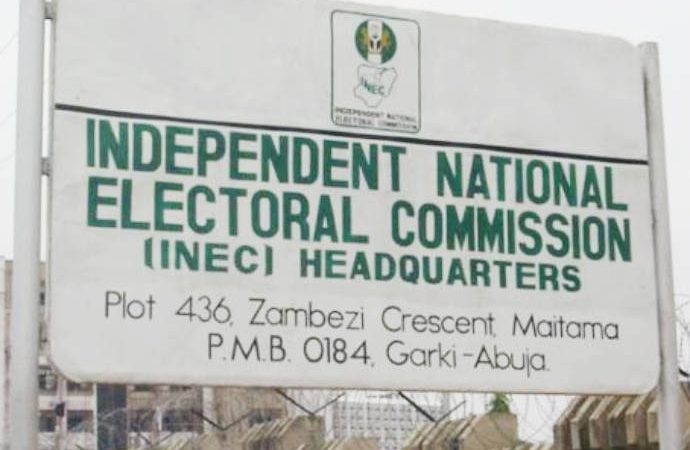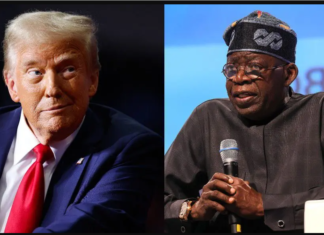President Barack Obama: “Africa does not need strong men; it needs strong institutions.”
Presidential candidate Muhammadu Buhari: “You need strong leaders to build strong institutions.”
An intriguing argument.
The time has come for President Buhari to give some serious thoughts to rebuilding the institutions critical to our democracy. One such important institution that needs his urgent attention is the Independent National Electoral Commission, INEC. No one has undertaken its institutional reforms since its inception in 1998. It is a fundamental mistake to assume that this institution conceived in a hurry during the Abdulsalami Abubakar transition programme 16 or 17 years ago can perfect itself through the ageing process. It is not red wine, for crying aloud.
The commission should be one of the strongest pillars of our democracy. It holds the key to the integrity of our elections. We can neither sustain nor deepen our democracy without the commission. It is the only visible face of what we do to or for our democracy. It would not do to powder its pock-marked face in our four-year general election circle and pretend that all is well when we are complicit, knowingly or unknowingly, in giving it a bad name.
We and the rest of the world hold INEC responsible for whatever goes wrong with the conduct of our elections. Governments, NGOs and respectable institutions send their representatives to monitor our elections and report on their fairness and freeness. When such reports praise the commission, we are over the moon as a nation. When they excoriate its competence, we know the devil has been here again.
It is no use denying that plenty has gone wrong with our elections in the 16 years of our return to civil rule. The rotten eggs have consequently homed in on the face of the commission. Almost every chairman of the commission left office in circumstances that were unedifying. Few things must be more personally distressing to a professor, the book man, than leaving his exalted office looking like a confused rusticated under graduate whose world has crashed on his head.
I am willing to bet that a public opinion poll would put the commission and the police neck to neck in unpopularity. Some Nigerians are firmly settled in their belief that INEC would never get it right. It is a damaging cynicism because it gives rise to voter apathy and the consequent low turns at our elections. We are basically ignorant of the INEC set up and why it has not made a sterling performance all the time. Have we looked at the internal and external demons that together tend to cripple the commission? Have we thought of the necessary institutional reforms necessary to reposition the commission to respond to the changing mores in our electoral system?
I, like most people in the country, fight shy of sparing my thoughts on these questions. I have not been in the habit of wasting my sympathy on the commission each time the rotten eggs fly towards its face. I tend to believe that if other African countries can treat the conduct of their elections like a breeze then our problem must be that in the conduct of our elections we have complicated the simple act of eating boiled yams.
In the last couple of weeks, however, I have taken some interest in INEC. I have had the privilege of meeting and interacting with every chairman of the commission, including the current one, Professor Mahmood Yakubu. As I look back, I find that each of them spoke well of his commitment to conduct free and fair elections. So, why did things go so badly wrong each time? It now seems to me that the fault is not in these professors but in the flawed system within which they have to work and prove themselves.
I now know that the commission was and remains a victim of our collective cynical attitude. I bet some pray hard for the commission to fail each time. Given what I now I know, I would argue for an urgent institutional reforms to rid INEC of the unnecessary baggage it is saddled with. I would thus argue for a lean and effective electoral empire.
The commission was born in circumstances that make its institutional reforms urgent and necessary. To use the local parlance, it was born in hurry-hurry. It came into being with creases that are inevitable in an institution birthed in such circumstances. We should have a good look at it long before now.
Twenty-one of the 36 states do not have resident electoral commissioners. Hard to believe that 21 commissioners are doing the work meant for 48 commissioners. Something is bound to give. Despite its crippling under staffing, the commission cannot refuse to deal with its inheritance: 80 nullified elections; 23 upturned elections; 10 bye-elections and resolve the PVC palaver, etc. How we expect to do this with under staffing beats me.
Here is a sticky point. Despite repeated assurances to prosecute electoral offenders, there is no law in INEC or elsewhere that deals with this crime. We need that law if we intend to end the impunity and the cynical rape of our elections.
I wish to argue here that our electoral commission carries more baggage than similar bodies else where in the world. This unnecessary baggage is a clear drag on its performance. The commission conducts elections, registers new political parties, engages in the continuous registration of eligible voters and under takes voter education. A full plate.
INEC must shed this weight. A different body should be given the responsibility of registering new political parties and another body should assume statutory responsibilities for continuous voter registration. Some African countries, e.g. Kenya, have a set up in their electoral system worthy we may wish to study. The commission spends billions of Naira every four years to update its voters’ register. It always kicks up a dark dust of controversy. If you had a body solely responsible for this, it would save tons of Naira and free INEC from the frustration of doing so many things at the same time.
How independent then is the Independent National Electoral Commission? Time to address the question. For the commission to be truly independent, it must be financially independent. It should be funded from the consolidated revenue fund of the federation to free it from starved of fund by the executive. An INEC going to the executive with a begging bowl cannot be said to be independent. A strong and independent electoral umpire should have secure funds in the consolidated revenue fund. Its funding must not be at the mercy or the discretion of the executive. No one can guarantee that the executive might not feel tempted to withhold funds from the commission in order to bend it to its will. Instances of this are too well known.
We must restore to the commission its right as the primary custodian of our electoral process. Not many of us appear to give serious thoughts to this. We must restore to INEC the right to qualify and disqualify candidates put up by the political parties for elective offices. It is unhelpful in our circumstances to make the political parties the sole arbiter in this.
At a seminar I attended in Kano two years ago on electoral reforms, the INEC commissioner who represented his chairman told us that if a political party puts forward a Chinese national for an elective office and “We can all see he is Chinese INEC has no powers to reject him.”
You would recall that without the necessary filtration system, in 1999, we had rich thieves and wealthy drug lords virtually dominating the national assembly. Senator Nuhu Aliyu, former deputy inspector-general of police, was horrified to see that sitting there in the hallowed chambers of the senate with him were men he once prosecuted and jailed for various criminal offences. He threatened to name names. He did not. I suspect he decided to respect the elevated social status of the criminals who had acquired the right criminal experience to make laws for the good governance of our country. Don’t laugh.
If INEC were comfortable, at least with the staffing position, this would be the right time for it to lead public discussions on diaspora voting, election violence and how best to curb it; independent candidature as well as voter education and voter mobilisation, among other things.
I rest my case.













